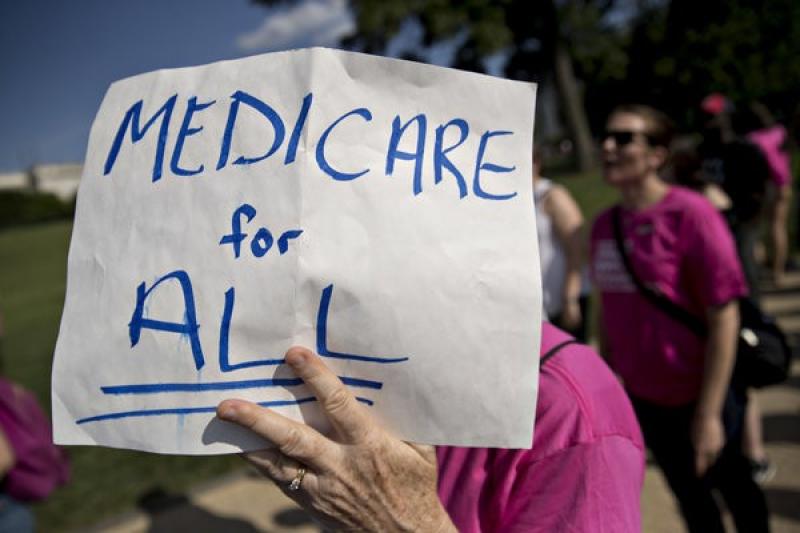‘Medicare for All’: The Impossible Dream



The Brits and Canadians I know certainly love their single-payer health care systems. If one of their politicians suggested they should switch to the American health care model, they’d throw him out the window.
So single-payer health care, or in our case “Medicare for all,” is worth taking seriously. I’ve just never understood how we get from here to there, how we transition from our current system to the one Bernie Sanders has proposed and Elizabeth Warren, Kamala Harris and others have endorsed.
Despite differences between individual proposals, the broad outlines of Medicare for all are easy to grasp. We’d take the money we’re spending on private health insurance and private health care, and we’d shift it over to the federal government through higher taxes in some form.
Then, since health care would be a public monopoly, the government could set prices and force health care providers to accept current Medicare payment rates. Medicare reimburses hospitals at 87 percent of costs while private insurance reimburses at 145 percent of costs. Charles Blahous, a former Social Security and Medicare public trustee, estimates that under the Sanders plan, the government could pay about 40 percent less than what private insurers now pay for treatments.
If this version of Medicare for all worked as planned, everybody would be insured, health care usage would rise sharply because it would be free, without even a co-payment, and America would spend less over all on health care.
It sounds good. But the trick is in the transition.
 Article is LOCKED by author/seeder
Article is LOCKED by author/seeder



Nope, the doctor's offices would transition and just have to fill out one set of forms instead of 50 different forms for 50 different insurance plans.
They'll be happier with the new one.
Americans With Government Health Plans Most Satisfied
Actually they're saying that we are taking away the private insurance plans that will treat your illness based on the companies profit margin, and will use every legal action available to make sure we keep our profits as priority over you keeping your life.
They go to work for new system. Cut out the bonus and big salary for CEO and a few at the top and treat everybody else right
Other countries with Medicare for all, still have insurance.
It would not be eliminated.
They would just start selling supplementary insurance like they do in all the other countries, and like they do now for Medicare patients.
If it means them keeping money coming in, they will do it quickly. Keep in mind that since private insurance companies change their policies yearly, hospitals have to transition just as often, difference is that once they switch to Medicare for all, they can stop transitioning.
Nope, doctors would save lots of many. Instead of hiring 6 insurance coders because of the myriad of different forms and procedures from every different private insurer, they would only have to hire enough to process their patients for 1 set of insurance papers and policies.
Current insurance ways are biggest reason we don't have enough Doctors
It is already getting that bad
Patient expectations transition every year as it is. When the policy changes they have to figure out what coverage they have lost and how much more premiums will cost them for the smaller coverage they now have.
We already have wait times here, we also have a lot more doctors here, so your comparison is naive.
We pay twice as much for worse outcomes under for profit insurance system...
The big insurance companies have brought this on themselves They can't be trusted to do this important service
Not when their bottom line is the dollar. They are in it to make a profit, and they do.
The systems are already in place. It wouldn't be as hard as people make it out to be.